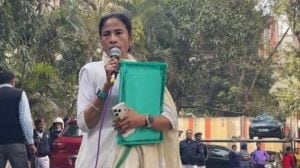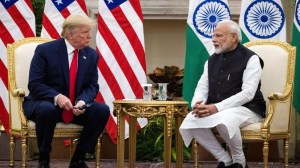Of No Fixed Address
Afropolitan author Taiye Selasi on her many homes and why she can never be a foreigner in a strange land
Afropolitan author Taiye Selasi on her many homes and why she can never be a foreigner in a strange land
Flux becomes Taiye Selasi. The idea of the much-feted debut novel of this part-Nigerian-part-Ghanaian author,Ghana Must Go,came to her while she was at a yoga retreat in 2010. She wrote it while travelling across Europe,Africa and Asia. But it wasnt quite as glamorous as it sounds. With a dear friend,I was doing a 10-day yoga retreat in Haa,Sweden,when the idea for the novel arrived. We escaped the salt-free food and sunrise karma yoga for Copenhagen,where I wrote the first 10 pages of the novel. The next 90 I wrote on the road. I had quit my job in television production in order to write full-time,and could no longer afford New York rent. Like the quintessential starving artist,I was shacking up with whomever would have me. My mum in Accra,her ex-husband in New Jersey and his wife in New Delhi all opened their homes to me until I found an agent. Then I moved to Rome, she says in an e-mail interview.
Like her characters,home for Selasi has never been of a fixed address. Born in London,she grew up in Massachusetts,Boston,and is currently based out of New York,New Delhi,Rome. She is neither quite British,nor entirely American or African. For me,the word home refers not to a place but to a feeling: the sense of being wholly accepted and welcomed where I am. There are houses on four continents that I call home in the States,Ghana,India,Italy but this has less to do with the countries than with the people I find there. I go home to find people I love,people who love me. Simply,home is love, she says.
The 33-year-olds perception of Africa too is shaped by this curious imagination of the native and the immigrant. Ill never be fully accepted as Nigerian or Ghanaian by other Nigerians and Ghanaians. And I accept this other-ness. But I dont perceive any part of the world,Africa included,as foreign. As the famous quote goes,I am human. Nothing human is foreign to me, she says.
In a sense,Selasi is the Afropolitan that she made popular much before her book was published in April this year. She subverts stereotypes of race in quite the same way as she wrote about in the essay Bye-Bye,Barbar Or What is An Afropolitan? in 2005. With their parents having left Africa in the 60s and 70s,she is part of the Cultural Hybrid,known by the funny blend of London fashion,New York jargon,African ethics,and academic successes,belonging to no single geography. In short,she is of a generation of accomplished African-origin professionals making good of the opportunities they have had to become the coolest-damn-people-on-earth. Her short story,The Sex Lives of African Girls published in Granta magazine in 2011,had found an admirer in the venerable Toni Morrison; Salman Rushdie endorsed her talent. She has a degree in American studies from Yale and another in international relations from Oxford University,an equal eye for photography as for syntax. The rights of Ghana Must Go was snapped up based on a mere 100 pages of her manuscript by celebrity agent Andrew Wylie. The success of the essay was an endorsement then,not just of what she believed in,but of her person.
The reaction to the essay was slow,but it snowballed into a phenomenon. When I first published it,while finishing my studies at Oxford,it garnered exactly the reception I expected. About 10 people read it,including family members,and that was that. About two years later,through the magical and mysterious machinations of the internet,the essay found its way to Nairobi and from there to the rest of the world. I was thrilled to find that so many people could relate to my experience, she says.
Her protagonists too are part of this Afropolitan universe Kwaku Sai,a doctor who moves out of his impoverished life in Accra to graduate with top honours from Americas John Hopkins; his wife Folasade,with a seat at a prestigious law school that she gives up; and their children: Olu who follows in his fathers footsteps; Taiwo,a gifted lawyer-in-the-making undone by an improper affair and flaming from a childhood trauma,her twin Kehinde,an artist of some repute,party to her grief,locked in his own private hell; the youngest Sadie,bulimic and forever striving to live up to her high-achieving siblings.
Divided into three segments Gone,Going and Go the book,the title of which is taken from a 1983 campaign to evict Ghanaian refugees from Nigeria,explores what happens when Kwaku becomes a victim of racial injustice and walks out on his family. As the family gathers in Ghana for his funeral,each attempts a closure that will help them move on.
In Ghana Must Go,Selasi weaves autobiographical strands into the plot. The writer,who is part of Grantas best of young British novelists list 2013,says it helped her write about experiences she is yet to face. I chose to use familiar details cities,schools,occupations so as to free myself up to explore more unfamiliar terrain: marriage,parenthood,death.
What also helped was her interest in photography. I tend to think that between the image and the word lies a liminal space,and that it is from this space that all my work takes rise. When we look at certain photographs,we can read as much as see them: we can read a story,an entire narrative,in the forms. So,too,with a particularly vivid piece of prose; we see as much as we read the text,the images as clear to us as photographs8230; Theyre both tools for visual storytelling, she says.
While the book has given her all the leverage she could hope for,Selasi slips away from comparisons with fellow African-origin writers such as Zadie Smith and Chimamanda Ngozi Adichie. Instead,as she launches the book in Ghana,she turns to the future and the many things that are to be a part of it. Two screenplays,one set in Italy,the other in Ghana; a documentary about African millennials called 2030 Six; a second novel; and Ive just fallen in love, she says.
- 01
- 02
- 03
- 04
- 05































